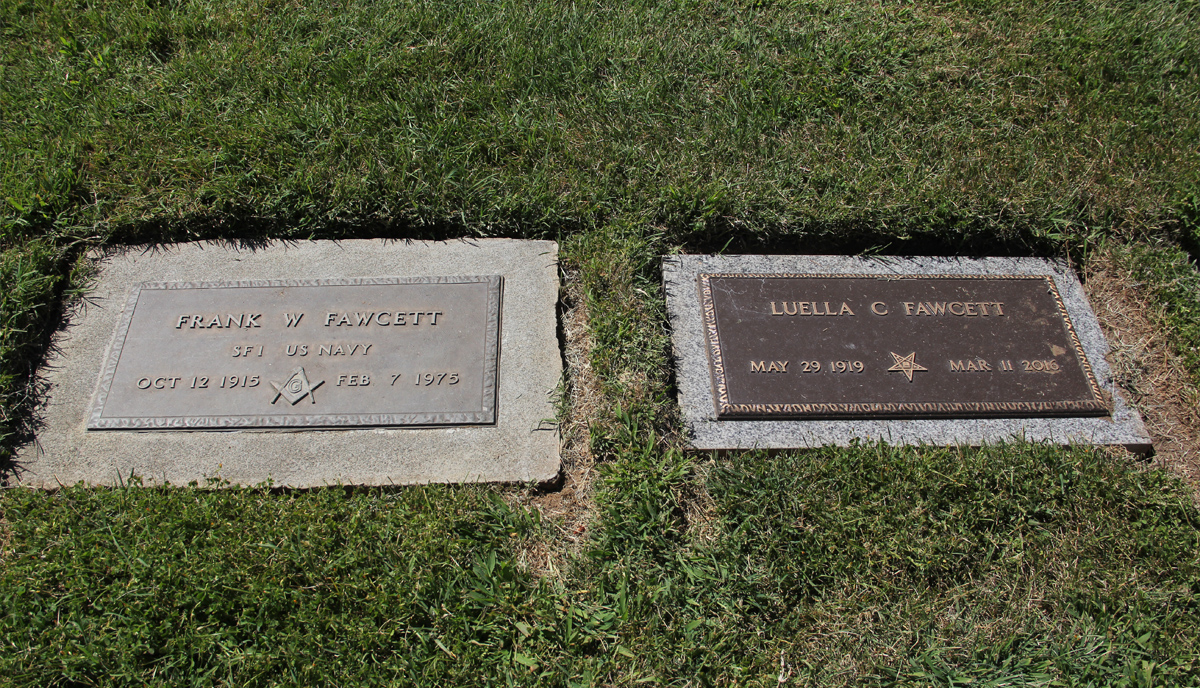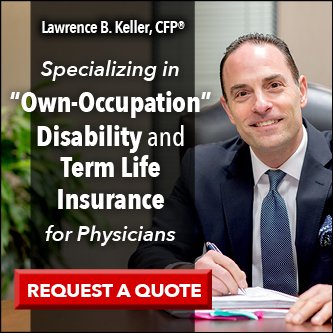Here we are, coming down the home stretch and about to finish residency. With an increased income comes some new financial decisions. The need for life insurance is one of those decisions. If you don’t have any, now would be a good time to consider getting some.
The purpose of life insurance is to support the people who are dependent on your income if you die and aren’t there to provide for them anymore, like your spouse and children. If you are single, there is no one depending on your income and you do not need life insurance. Don’t waste the money. Don’t buy life insurance until someone else depends on your income for their livelihood.
During the first few years of our marriage, my wife was still working and financially she could still take care of herself if I died. After our first child was born, she chose to stay home with him and then they both depended on me for financial support—that’s when I bought my first life insurance policy. It was shortly after finishing my residency.
When purchasing life insurance, only buy term life insurance and pick either a twenty-year or thirty-year level-term policy for an amount that will support your spouse for the rest of their life and your kids through college, after which your kids should start supporting themselves. The premium cost will stay the same for the entire policy period, twenty to thirty years, making it easy to include in your budget.
Stay away from any life insurance product that is combined with an investment. These come packaged with several different names, such as universal life, whole life, and variable universal life. Now that people are onto those names, some of the agents selling this stuff have used the tax code number instead and approached me to invest in a 7702 account or a 770 account. A bad deal by any other name is still a bad deal.
Investments are to make money for your use while you are still alive. Life insurance is for your dependents to live on if you die while still supporting them with your earned income. Those are opposites—so don’t try to combine them. Any type of life insurance combined with an investment serves the function of providing a very nice commission for the one who sold it to you. Those commissions come right out of your pocket.
Many life insurance sales people will make you believe they are investment advisors. But if they are trying to sell you anything but term life insurance, consider them sales people and not advisors.
The worst thing about a life insurance product that is also an investment is you don’t get to keep both. If you die, you get the life insurance amount and they keep all of your investment account. They sold you this product as a savings plan, but it is a savings plan for them, not you. If you quit paying premiums and take the investment money you accumulated, you might have to surrender some of your investment balance to pay the sales person’s commissions. It’s a bad deal if you die and it’s a bad deal if you live.
Stick with a term policy and invest your money elsewhere as you see fit. Then if you die, you get both the investment account and the life insurance pay out. If you play your cards right, after your twenty-year or thirty-year level term policy ends, you will no longer need any life insurance. By then, you should be financially independent, and insurance will no longer be needed to support your family if you die, since your investments will supply your dependents with all the money they need.
So how much insurance do you need? This is a lot like the story of Goldilocks and the Three Bears. Too little insurance and your family is not covered, and may struggle without your income. Too much, and you waste money on premiums. Just right is what you seek.
Start by calculating your net worth and making a budget. You will need enough insurance to pay off all your debts except federal student loans which would be forgiven. You will also need enough money to set up a fund for your dependents to live well by withdrawing four percent of the principle every year. To calculate the amount needed in this fund, multiply their annual need (spending budget) by 25. Then, include enough to get your children through college. Add in any special needs, like buying a house if you don’t yet have one. Subtract any savings you already have accumulated, and any passive income or government relief you will have.
Life insurance calculation example:
Let’s look at an example of a new doctor in the first year of practice whose spouse stays home to care for their two young children, has $250,000 in student loans (60% federal loans), and rents a house. Their annual budgetary need with the loans paid off is $100,000.
They also have $20,000 in savings and no passive income.
Total outstanding non-federal student loan debt = $100,000
Cost of college for the kids = $25,000 per year for each = $200,000
Enough to buy a house for the family = $400,000
Annual budget needs at a 4% withdrawal rate = $100,000 x 25 = $2,500,000
Subtract the savings = -$20,000
The total required = $3,180,000
Based on these numbers, a reasonable amount of life insurance for this family is a $3.2 million twenty-year or thirty-year level term policy.
But as you age, your savings grow, your retirement plan grows, and your debts shrink. That is, if you are doing the right things. So, you need the most insurance at the start and as time goes by you need less and less insurance.
In order to save money you might layer two or more life insurance plans. For example, you might have:
$1,000,000 ten-year level term policy.
$1,000,000 twenty-year level term policy.
$1,200,000 thirty-year level term policy.
This plan will give you $3,200,000 of life insurance for the first 10 years.
For years 11-20 you will then have $2,200,000 of life insurance.
For years 21-30 you will have $1,200,000 of life insurance.
Layering the policies is less expensive than having a $3,200,000 thirty-year level term.
So what are you waiting for? You know how to figure your need. So click on one of the life insurance agents on the right of my webpage for quotes on term insurance. The advertisers on my blog and web page pay for ad space to keep my blog afloat financially. So please support these agents who are doing it right. If you need any more information about transitioning out of residency into your new attending job, pick up a copy of my book, The Doctors Guide to Starting Your Practice/Career Right.






Sorry, I should have more specific. I meant just a term policy for the med school/resident years, then drop once an attending.
It might be useful as a student/resident. At that age, the premium will be very low also.
Don’t you think there should be a policy (probably smaller) on a stay at home spouse if there are children involved? At least till there in high school and can take care of them shelves, more or less.
Notadoc,
There are people pushing for the stay home spouse to have life insurance. Mostly insurance sales people. I disagree for physicians. Physicians should have plenty of money coming in to cover the costs of what the stay home spouse did. This is not to discount what they do, as I know my wife did plenty. It is to say that doctors have the income to take care of that problem without buying life insurance. Put those life insurance premiums in the bank instead.
I have debated this back and forth. If something were to happen to me my portfolio by itself would be enough to set up my dependent(s) for a trouble free financial future. But if I continue to complete the insurance coverage it would be like another windfall and set them up even more so.
I have disability insurance (separate from my group insurance) that’s about $1500/yr (I think I should stop that now that I think about it).
I have 2 life insurance policies that add $6k/yr (one that stops when my daughter turns 18). The main policy was until 65 for me and that is the one with return of premium rider (I pay $360/mo).
If you were in my shoes would you stop any or all of them? Pretty much FI right now but this would be considered “bonus money” to my heirs. Plus I heard when you die, this money is usually available right away which could be a huge help whereas the other stuff may take time to get access to.
Xrayvsn, I suspect I am in your shoes. When I was FI, I waited a couple of years proving I was FI. Then I got rid of life and disability insurance. My heirs will get plenty without the insurance. I’d rather spend the insurance money on something fun.
I wish I heard of the laddered approach to insurance policies when I first came out. It makes the most sense financially and in reality with the fact that as you increase your net worth you don’t need as much coverage later down the road.
Where I am now, I really don’t need life insurance anymore (although I still keep it partly because of sunk cost fallacy. I got talked into buying a return of premium rider which essentially returns my entire premium paid if indeed I don’t use the policy during the term I had taken).
Xrayvsn thanks for commenting. So you are really going to keep making payments on a policy you don’t need?